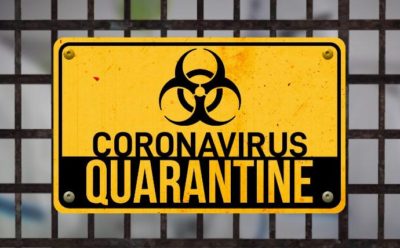George Floyd Murder: What the Other Officers Will Be Charged With.
Freeman’s press release, er, I mean Complaint states that “Kueng held Mr. Floyd’s back and Lane held his legs….Lane asked,“should we roll him on his side?” and the defendant said, “No, staying put where we got him.” Officer Lane said, “I am worried about excited delirium or whatever.”…Lane said, “want to roll him on his side.” Kueng checked Mr. Floyd’s right wrist for a pulse and said, “I couldn’t find one.” None of the officers moved from their positions.” it doesn’t mention that Tou Thoa guarded the operation, blocking bystanders from attacking Chauvin as Mr. Floyd was choked to death. Please not that our AG Keith Ellinson has now appropriately added 2nd Degree Unintentional Murder to the charges, no complaint filed yet. I predict that some or all of these officers will either be charged with Liability for Crime of a Co-Conspirator or Liability for Crimes of Another (Aiding). Lane’s defense will be that he had no intent or that he abandoned the purpose and made a reasonable effort to prevent the crime before the crime was committed, since he did suggest to roll him on his side (The jury will be instructed that if they buy this fact as a reasonable effort then he’s not guilty). Below are the standard jury instructions for those crimes and Lane’s defense, which carry the same guideline sentences as the underlying Chauvin charges of 2nd Degree Murder (150 months), 3rd Degree Murder (150 months), and 2nd Degree Manslaughter (48 months) and can be convicted even if Chauvin is acquitted. Freeman’s Complaint his here: https://www.hennepinattorney.org/-/media/Attorney/Derek-Chauvin-Criminal-Complaint.pdf
CRIMJIG 4.01 Liability for Crimes of Another
The defendant is guilty of a crime committed by another person when the defendant has played an intentional role in aiding the commission of the crime and made no reasonable effort to prevent the crime before it was committed. “Intentional role” includes aiding, advising, hiring, counseling, conspiring with, or procuring another to commit the crime.
[A defendant’s presence constitutes aiding if:
First, the defendant knew his alleged accomplices were going to or were committing a crime; and
Second, the defendant intended that (his) (her) presence (and actions) aid the commission of the crime.]
(If the defendant intentionally aided another person in committing a crime, or intentionally advised, hired, counseled, conspired with, or otherwise procured the other person to commit it, the defendant is also guilty of any other crime the other person commits while trying to commit the intended crime, if that other crime was reasonably foreseeable to the defendant as a probable consequence of trying to commit the intended crime.)
The defendant is guilty of a crime, however, only if the other person commits a crime. The defendant is not liable criminally for aiding, advising, hiring, counseling, conspiring, or otherwise procuring the commission of a crime, unless some crime (including an attempt) is actually committed.
CRIMJIG 4.04 Liability for Crime of a Co-Conspirator
The defendant is guilty of a crime committed by another person when the defendant has conspired with the other to commit the crime.
(If the defendant conspired with another person to commit a crime, the defendant is also guilty of any other crime which that person commits in furtherance of the conspiracy or while trying to commit the intended crime, if that other crime was reasonably foreseeable to the defendant as a probable consequence of furthering the conspiracy or trying to commit the intended crime.)
The defendant is guilty of a crime, other than the crime of conspiracy, however, only if the crime (including an attempt) is actually committed. (The defendant is guilty of conspiracy when the defendant has conspired to commit a crime, even though the crime is not actually carried out.)
CRIMJIG 4.03 Effect of Nonconviction of Other Person
If the defendant aided, advised, hired, counseled, or conspired with another, or otherwise procured the commission of a crime by another person, and the crime was committed, the defendant is guilty of the crime. You are not to concern yourselves with what action, if any, was taken against the other person.
CRIMJIG 4.02 Effect of Withdrawal
Even if the defendant aided, advised, hired, counseled, or conspired with another, or otherwise procured the commission of a crime by another person, the defendant is not liable for any crime, including the intended crime, if the defendant abandoned the purpose and made a reasonable effort to prevent the crime before the crime was committed.




